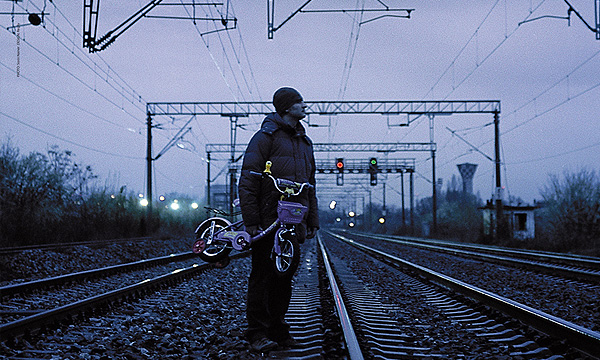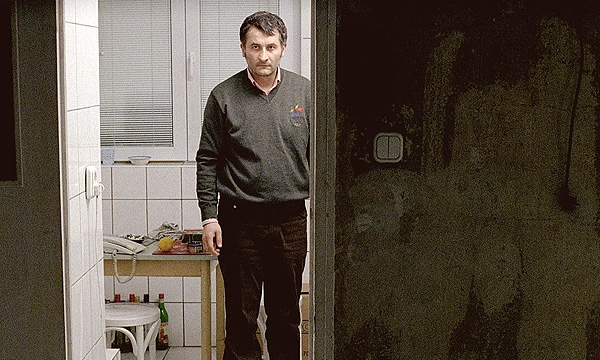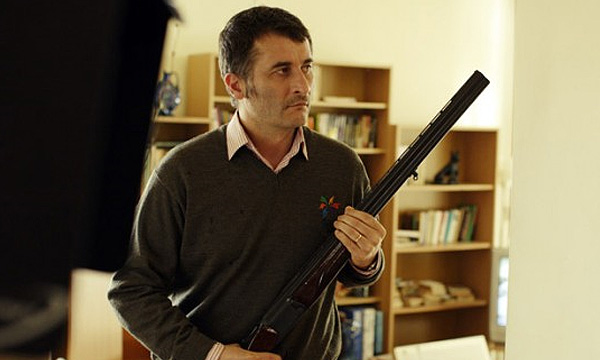Romanian filmmaker Cristi Puiu is an old acquaintance of the Reykjavik International Film Festival: in 2005 his The Death of Mr. Lazarescu won the Discovery of the Year Award. To the Special Presentations category of this this seventh edition of the film festival, Puiu brings his Aurora, a film that not only he scripted and directed, but also starred in as the main character. Aurora is the second instalment in Puiu’s planned Six Stories from the Outskirts of Bucharest, the first being his celebrated The Death of Mr. Lazarescu.
Aurora was described by producer Anca Puiu as a crime story from a different perspective. Sure enough, Puiu’s film can be described to a certain extent as a crime story. The criminal deed in itself, however, occupies only a small part of the film. The shadow of the imminent crime hangs over the character’s actions and also over his inaction, but we are only allowed to guess and to make hypotheses.



Viorel (Puiu’s character) is a man with a purpose. From the first sequences we know he has something to do, but we are not given to know exactly what or why. He keeps a rifle in a bag, he appears to be living alone, he spends time observing a family from a distance. We follow him around in the outskirts of the city, as he drives or as he seems engaged in inspecting the surroundings. Every move he makes is measured, his interaction with other characters is sparse: Viorel doesn’t give away details, he’s not a character conceived to content the audience’s curiosity. Puiu’s acting is accordingly consistently essential. We collect hints about Viorel and his purposes from the setting and objects populating it, from his way of looking around, from the things that seem to attract his attention in a special way.
Aurora doesn’t speak the language of average crime features. The pace is very slow, so slow that the audience is led at some point to forget about the initial curiosity about Viorel’s purposes to start caring about the man as gradually a bond with the character is established. For some reason, it made me think about Kitano’s Sonatine, another film whose expected focal point – action and violence – is something taking place in very irrelevant gaps between scenes concentrating on trivial activities. In Aurora, when the crime finally takes place, rather abruptly and totally unostentatiously, it still doesn’t acquire the status of main focus of the film. The focus always remains on the man, not on the action and its motives. The viewer has to wait till the very end of the film to be offered the key to the interpretation of everything he has seen in three hours. Under this respect, Puiu’s construction works perfectly. The final scene is a revelation, but it doesn’t ultimately explain everything in the conventional manner of other films’ diegetic commentaries. We are given to know only what’s functional according to the film’s scheme and all the other questions remain cleverly unanswered.
Title: Aurora
Year: 2010
Director: Cristi Puiu
Genre: Drama
Country: Romania, France, Switzerland, Germany
Runtime: 185 minutes
Language: Romanian